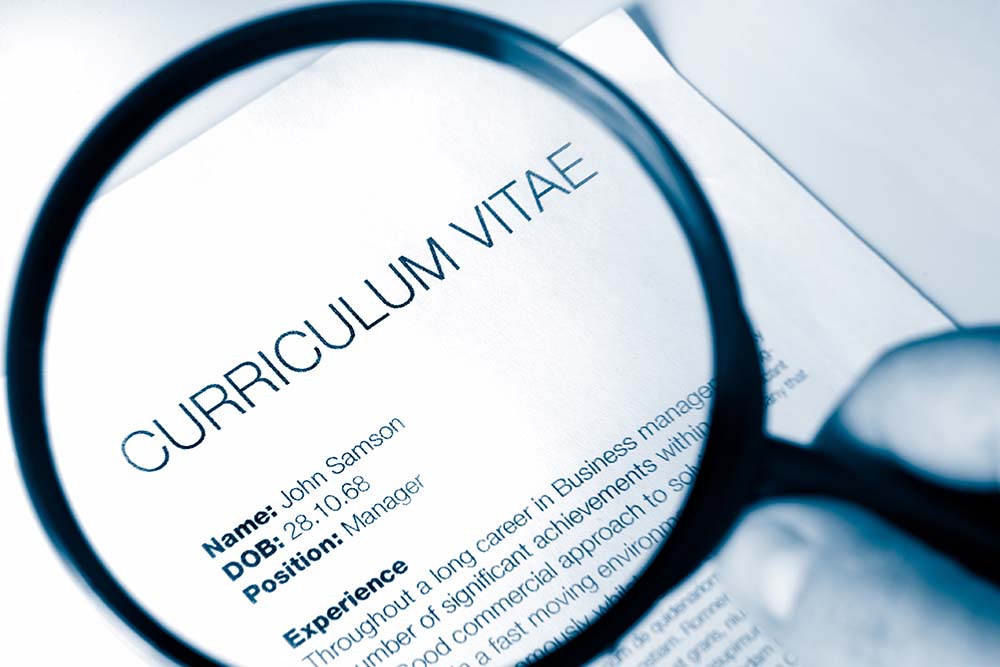The full form of CV is Curriculum Vitae, which is a Latin word that means ‘course of life.’ Almost everyone who has completed their studies and wants to take the next step in life builds a resume. CVs and resumes are made to give accurate information about an individual to recruiters. They represent all the experiences, education and even personal information of the individual. If you are going for higher studies, admissions or any other project resume is the priority that can help you grab that opportunity. Through this post, you will get information on aspects such as how to write a CV and other information required to make it. So, without any further delay, let us start the discussion on CVs and resumes in detail.
What is a CV?
Curriculum Vitae is a piece of information usually generated to give tailor-made information about a specific person to recruiters or companies. It contains all the vital information such as education, past life projects, experiences and other essential information that can help one to get that particular position.
The most significant feature of a CV is as follows:
● A traditional resume or CV does not contain information on the personal interests of an individual.
● They are usually carried out during interviews.
● They help recruiters and companies in identifying the best candidates.
● They are tailor-made for a specific applicant who is applying for different positions.

What is the difference between a CV and a resume?
CVs and resumes are different from each other. Yes, you heard right that CV vs Resume is a concept. Most people think that these two are similar but they have certain specific differences. Some of the major CV and resume differences are mentioned below. They are as follows:
| CV | Resume |
| CV is usually made to apply for different positions such as fellowships, faculty openings, and internships, etc. | Whereas a resume is made for business industry professionals. In addition, it is built to apply to various governmental and nonprofit positions. |
| The length of the CV can be long as there is no specific limit for the pages. It should contain all the information regarding your educational and work backgrounds. | A resume can be of short length. It can be one or two pages as there is no particular format or rule to write it. The information contained in a resume should be mentioned according to the position they are applying for. |
| There is a specific format to write Curriculum Vitae. | There is no specific format to write a resume. |
| A CV contains a structured layout that starts from personal information such as name, address, education, academic background, experiences, awards, publications, honors, etc. The layout of a CV is always static and it never changes. | A resume is a concise synopsis that one offers to recruiters. It can provide a relevant professional experience for the particular job position. The layout of a resume can change according to the requirements of the job situation. |
Tips to write a CV
Do you want to write a CV for your next job? Are you a beginner who wants to frame a perfect CV for the job position? If yes then give a quick read to the tips given below that how one should write a CV. it is as follows:
● Start by matching your qualifications and educational background to the position you are applying to. It should be according to the position you are trying to get into. One should properly read the requirements before applying for the job.
● Keywords are one of the most essential aspects of the CV. You should include the required keywords in your job description so that potential recruiters can spot you.
● To write a CV or a resume one should follow a specific template. It helps recruiters or employers quickly notice your experience and qualification.
● Before sending your CV ahead you should properly check that there are no spelling errors or other grammatical mistakes.
Various sections of a CV
Every CV has various sections that one should properly write before sending it ahead. Do you want to write a perfect CV for your job application? If yes then below we have discussed various sections of my CV in detail that you would surely not miss. They are as follows:
● Applicant information: It is the area where all the essential details such as name, address, email and phone number of an individual are mentioned. In addition, you can also leave a URL of your social media handles such as LinkedIn through which employers can reach you.
● Education: It is one of the most important sections through which your employers will judge you. Your educational background will highlight your interest and capabilities for the job so it should be well written.
● Experience: Your experience should be written professionally so that an employer can get a proper idea about your working background. You should write about the projects to which you have contributed and other areas of interest.
● Publications: It is the area where your achievements as an author should be mentioned.
● Presentations: If you have ever been to a conference or presented something at the national and international level then mention it in this section.
● Awards, honours or fellowships should be mentioned in this section.
● Professional training experience with proofs such as certificates should be mentioned in this section.
● Any professional service that you have done must be given equal importance in your CV.
Every CV should have optional and supplementary sections also so that recruiters can get proper information about the applicant. The information that should be mentioned in optional and supplementary sections is as follows:
Optional sections
● References
● Additional advocations
● Hobbies
● Activities
● Languages learned
● Skills
Supplementary sections
Every candidate should present each and every piece of information to the recruiters so that they can evaluate them with ease. The supplementary sections that are added to the CV are as follows:
● Transcripts
● Cover letter ‘statement of purpose’
● Research
● Dissertation abstract
What type of information should I use in a CV?
A CV stands for Curriculum Vitae. It should contain all the essential information such as your contact information, resume summary, objectives, education, skills, and work experience. The information in your CV will highlight your education, job, and skills so it should be accurate. The first step for moving towards your career is a CV so it should be written properly according to layouts and structures so that potential recruiters can spot you for the desired positions. In addition, many experts believe that using correct keywords in the resume can also help one get the desired job. So, what are you waiting for? Design a perfect CV today to get that job.

Expert tips on writing a CV
If you want to write a CV then there are some tips that you must follow. With a plethora of information available sometimes it can get difficult to filter out the accurate information. But don't worry we got you covered. Below we have mentioned some of the expert tips that you should follow if you want to write a structured CV. So, without any further delay let's start!
● One should always start with a name, address and other contact details.
● Introduce yourself through a structured description.
● Provide proper information about your skills.
● Highlight the experiences you have gained through your jobs and projects.
● Provide a gist about your achievements.
● Make a list of educational courses and training that you have gained in the past.
● Mention the hobbies and interests that you have.
Conclusion
Writing a CV as recognized by the experts also is an art. It should be well structured and must give proper information about the applicants. Many a time individuals are a perfect fit for the job but are not selected because of non-structured resumes. If you are trying to ace that job or want to get into a particular school then having a strong CV is a must. Above we have given detailed information that can be beneficial so give it a read.
FAQs
What is the best CV format?
Reverse chronological resumes are considered the best CV formats that one can follow to write a resume.
How much page length is essential for a CV?
If you are planning to write a CV then a standard two to three-page CV is a must that you should write. Recruiters should get essential and crisp information about you through your CV so one should try to highlight it.